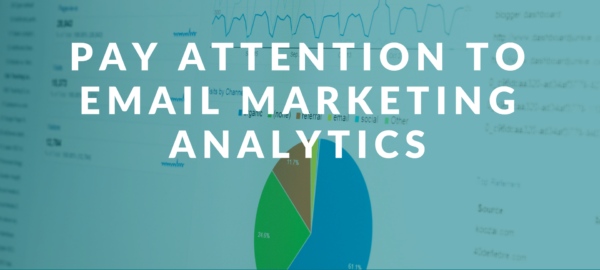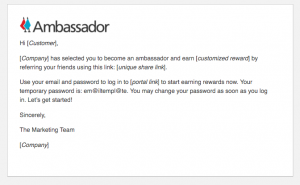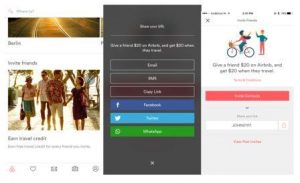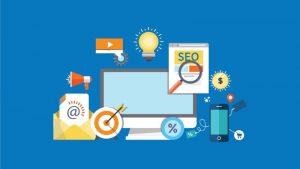— June 9, 2018
When it comes to successful marketing strategies, did you know email marketing consistently ranks as one of the best tactics? Studies show email has a median ROI of 122 percent; this is more than four times higher than other top strategies, including social media. In addition, HubSpot reports 86 percent of consumers want to receive emails from companies they do business with at least once a month.
As you can tell, research backs up claims that email marketing is worth the investment. In addition to the hard numbers, there are additional reasons this tactic plays an important role in your overall content marketing strategy.
As Forbes points out, email marketing can “fuel” your business’ strategy to increase website traffic and search engine optimization (SEO). How?
- It’s cost efficient.
- It provides a way to promote your blog posts, articles or other content.
- It increases link shares by making it easy for subscribers to share your content on their social pages or website.
- It encourages customer loyalty as well as brand awareness and reputation.
- It increases your social media follower base by offering another way to remind subscribers to connect with your social channels.
How can you include email marketing as an effective component of your content strategy? Keep reading to find out!
Before we move on though, I wanted to make sure you are aware of how the EU’s new GDPR laws may affect your business, even if you operate in the United States. As Erika’s article about how GDPR affects marketing explains:
While this law only applies to members of the European Union, it’s still going to affect those of us that do business on this side of the pond thanks to our global economy. In terms of your email marketing, if you have even one person on your list that is an EU citizen, it’s important you’re aware of the regulations. And if you don’t, it’s beneficial to be informed for good measure.
Make sure you check out her post for specifics about how to comply with the regulations.
How to Create Effective Email Marketing Messages
Before you begin your email marketing campaign, make sure you have a clear understanding of your budget and goals. Once you’ve clearly established them, you can tackle the question of how you’ll achieve your goals.
Effective Email Marketing Tactics
When it comes to the most effective email marketing tactics, Campaign Monitor reports the most important tactics are (in order):
- Personalization
- List Segmentation
- Automated Campaigns (see 15 examples of automated emails you can send on the Social Media Hat)
- Testing and Optimization
- Responsive Design
Entrepreneur backs up the importance of personalization too, sharing that, “More than half of consumers and 65 percent of B2B buyers surveyed were likely to switch brands if a company didn’t make an effort to personalize its communications to them.”
Whether you’re putting together an email marketing strategy for a small business, a medium-sized company or a major organization, personalization matters. How can you do this? As Entrepreneur recommends, “Get to know your subscribers better, and increase personalization by including polls in your emails. Not only is this an easy way for small businesses to learn more about their subscribers, it leads to more engaging emails and gives subscribers a chance to voice their preferences proactively.”

How are you segmenting your email marketing lists?
As you get to know your subscribers better, you can segment your lists better. Kissmetrics recommends separating them based on your target audience’s variables, such as:
- Demographics (e.g. age, gender, job title, etc.)
- Email Engagement (open rate and clickthrough rate)
- Geographic Area
- Past Purchases
- Amount Spent with Your Business
- Website Behavior
- Time Since Last Purchase
Once you have subscribers divided into specific lists, you can send more targeted, personalized emails based on their information. For example, if you have the lists segmented by geographical location, you could send an email letting one group of subscribers know about an upcoming event in their area.
Clearly, this can be a lot to manage. The good news is you can also subscribe to a third-party email marketing management platform (such as MailChimp or Constant Contact) to take advantage of tools and services they offer to assist with personalization, as well as list segmentation, automation, testing and responsive design.
Speaking of MailChimp, their blog shares a lot of helpful advice based on research into what’s worked well for their customers. In addition to the tactics above, the email marketing platform recommends:
- Using landing pages to provide, “A clear call to action and an easy space to make purchases.” This tactic has helped their customers increase their list growth rates by about 36 percent.
- Incorporating social media into your email marketing. MailChimp provides tools to incorporate Facebook and Instagram ads directly into your email campaign.
- If it’s appropriate for your brand voice, incorporate emojis into your emails.
- Rely on clear, high-quality visuals. As MailChimp explains, “What we do know is that when it comes to the relationship between click rate and the ratio of text to images in campaigns, keeping the amount of copy per image lower leads to success.”
Email Marketing Specifics: Creating Your Messages
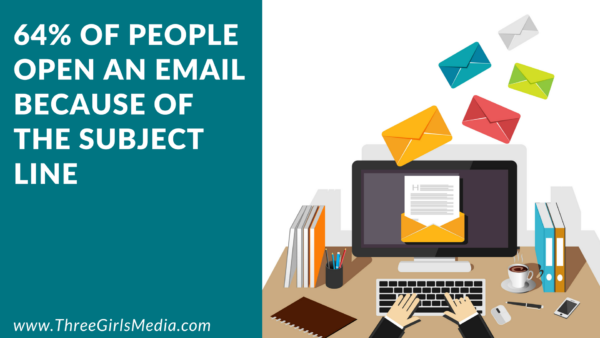
How much time do you spend crafting your email marketing subject lines?
Now that you have an idea of what tactics you want to include in your email marketing strategy, it’s time to get down to actually creating messages for your subscribers.
As Natalie Petersen shared in her recent post about content development, your e-newsletter should include these elements:
- An enticing subject line. 64 percent of people say they open an email because of the subject line, so spend time on it and make sure it’s enticing.
- A strong visual appearance. In addition to choosing colors and an overall feel that matches your brand, include high-res images throughout the newsletter.
- Concise, helpful content. Make your email easy to read and provide something of value to your readers. If you want to share an article that’s more than a couple of paragraphs, post it on your blog and link to it from the newsletter. Also, a brief introduction at the top of the email is a fantastic way to give your readers a quick look at what the issue includes and infuse a bit of your personality.
- Grammatically correct text. Text that’s rife with errors can be confusing, plus it makes you look less professional. If possible, have a co-worker or friend proofread the text for you and double check your work.
- A call to action. What do you want your readers to do after reading your newsletter? Share it with their friends? Contact you to for a free consultation? Make it clear how you’d like them to respond – after all, if you never ask they’ll never do it!
What type of content should you include? The biggest key here is to know your target subscriber. What messages will they want to receive from you? How will you provide them value?
For example, if you have a younger target audience, research into millennials’ preferences will help guide your email content. As this infographic shares:
- 63 percent of millennials actually prefer to communicate with retailers via email.
- 59 percent will take action from emails containing a site-wide or product category-wide promotional offers.
- The majority of millennials want to engage with retailers via email for discounts and promotional offers.
- 71 percent will take action from an email containing their preferred content (e.g. discount codes and free shipping)
- The majority of millennials will pull up an email when browsing in a physical store to access coupons.
10 Common Email Marketing Mistakes
As you begin (or revisit) your email marketing campaign, make sure you avoid these all-too-common e-newsletter mistakes:
-
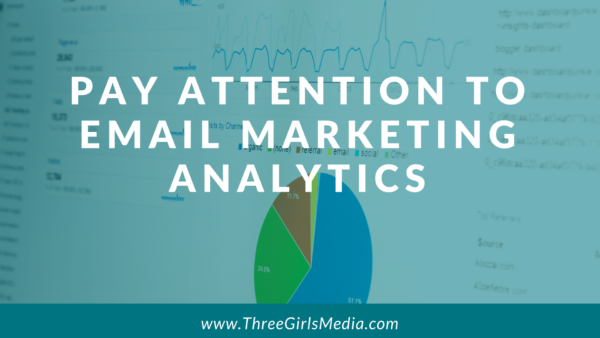
How often do you review your email marketing analytics?
You forget to look at the analytics. How will you be able to measure success without objective data? Each time a newsletter is distributed, take a look at how many recipients open it, which links they click, if they forward it, etc. As you look at this information, try to notice any trends you see emerging. Do your readers seem to like a particular type of content more than another? Is the open rate higher or lower when you send it in the afternoon as opposed to the morning? Pay attention to these tendencies and adjust your email marketing campaign accordingly.
- Your emails aren’t mobile friendly. If your newsletter doesn’t load on mobile devices, or is formatted in a way that’s hard to read, readers won’t take your email seriously. Ensure images, email size and videos that you send are compatible with mobile devices so that potential customers can find your emails.
- You lack consistency. Sporadically sending out emails to subscribers may frustrate them and then cause them to forget they asked to receive your messages and then unsubscribe when they see them. Instead, implement your email marketing on a consistent schedule and stick to it. You also want to be consistent with the content you share in your emails so subscribers will know what to expect and be more interested in opening them.
- You over communicate. Your subscribers follow you for a reason, but if you spam them with too many emails they will unsubscribe. When you create your email marketing schedule, don’t over load it with too many messages going out too frequently.
-
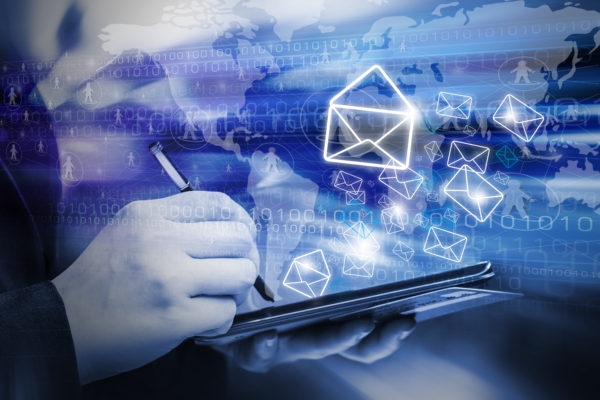
Do your email marketing messages fit your branding?
You ignore design. While a generic template or no HTML at all can be tempting, ignoring a custom-design means you’re losing brand identity. Custom templates allow you to showcase your business in a unique way and make it stand out from the rest of the emails people receive.
- Your headlines are dull. You want your marketing emails to be opened at the very least. Create a compelling subject line that grabs the attention of your recipients. Subject lines that lack pizazz can be easily categorized as spam to potential customers.
- You forget to customize the preview text. This is the preview of what shows up in recipients’ inboxes. As HubSpot explains, “If your email client supports preview text, also known as pre-header text, you can optimize it for every email you send. Allowing this text to auto-populate is a lost opportunity to grab attention or delight your recipients.” Most email marketing platforms include a place for you to customize this space.
- Your emails are too long. When it comes to email marketing, the shorter the content, the better. Each paragraph of your email should be about 3 to 4 lines at the most. Your potential customers are in a hurry and usually scan through emails. Ensure that your first sentence has the most important information so they won’t miss the crucial parts of your message.
- You don’t repurpose content you’ve already created. There’s no need to reinvent the wheel every time you send a newsletter. Share your latest blog post or a fascinating article you shared on Facebook. Remember, it takes multiple impressions for consumers to remember a brand, so repeat your message in as many channels as possible.
- You sound like a used car salesperson. Just because email marketing isn’t face to face doesn’t mean you can’t add a little personality to your messages. Avoid sounding like a used car salesperson by avoiding a full on sales pitch within your emails. Try adding a little humor, fun facts or anything else that may tickle the fancy of your potential customers.
Now you’re ready to get started with or revisit your email marketing campaign!
Digital & Social Articles on Business 2 Community
(45)
